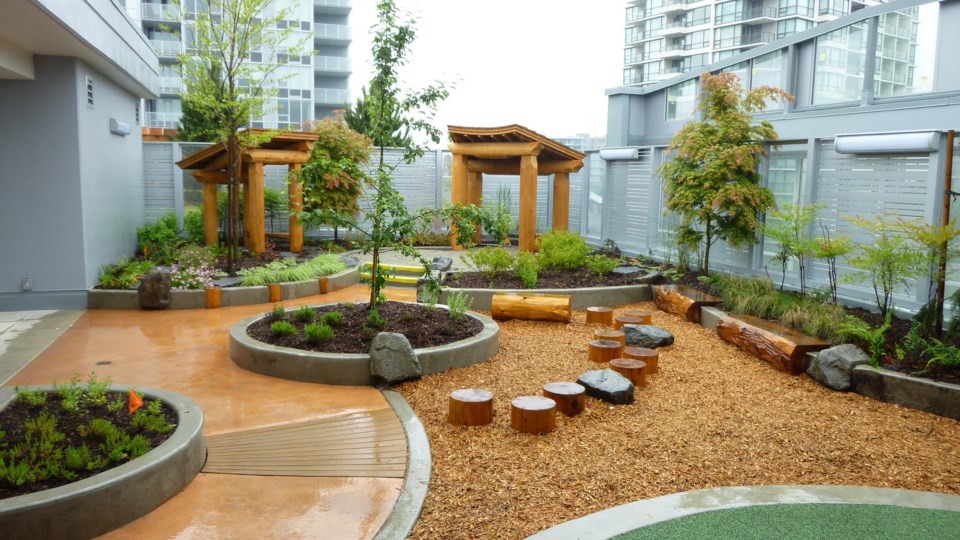Child care fees in Richmond continue to skyrocket, with the city now the third most expensive in Canada for families with toddlers in need of care.
According to a report issued Tuesday from the Canadian Centre for Policy Alternatives, the median monthly child care costs for a toddler in Richmond is $1,200.
Infant costs are even higher and there is little relief for when that toddler becomes a preschooler, as monthly preschool fees in Richmond have risen 12 per cent in the past year — more than any other jurisdiction in Canada. The median preschool fee is $980, making it the ninth most expensive city for such families.
And despite rising costs, Richmond has actually increased its overall licensed child care spaces by 46 per cent since 2009 (to 5,802 spaces in 2016). On a per capita basis, Richmond has gone from 15 spaces per 100 children aged 12 and under, to 24 per 100.
In Quebec, where child care is heavily subsidized, infant to preschool fees come in at under $200 per month. The most expensive cities are in the Toronto and Vancouver areas. In Surrey, preschool fees cost about $800 per month.
The only good news from the report appears to be that wait list fees (where parents pay money for simply being on a list) are only being charged at 13 per cent of child care facilities in 2017, whereas in 2016, nearly one third of facilities had such fees.
The report is based on a random sample of facilities across Canada. However, the City of Richmond found similar findings in its 2017-2022 Child Care Needs Assessment and Strategy, released earlier this year to city council.
Via a survey, the city found the average (mean) infant fees are $1,271, while toddlers are charged $1,220.
Low-income families have been hurt the most, as subsidies from the Ministry of Children and Family Development have not changed in years despite higher costs of living, noted the city.
Another challenge is finding spaces for children with special needs. According to the city, the Supported Child Development Program, operated by Richmond Society for Community Living, has seen demand far exceed population growth over the past 12 years, from 150 children to 386.
Survey results showed 49 per cent of respondent families are not working full-time, in order to provide alternate care for their children.
In reasons cited for not obtaining child care, 42 per cent cited costs, while 12 per cent cited a lack of available spaces.
Part of the solution for more spaces, as noted in a recent news release by the City of Richmond, is procuring child care space from developments.
The city says four more child care facilities are in the development stage following the September opening of Willow Early Care and Learning Centre — its seventh such location.
Willow is a new 5,500-square-foot condo facility, at 5688 Hollybridge Way, that will provide 37 spaces for children up to age six. The city now directly owns close to 233 licensed child care spaces. Four future spaces will add 249 spots.
But the city remains a relatively small player in the child care game, as community associations account for 954 spaces while private and non-profit programs operating out of schools account for just over 1,200 spaces. Private operators make up the rest.
Willow is managed by Atira Women’s Resource Society and provides some child care to single mothers, some of whom live in nearby subsidized housing.
Willow was constructed as part of the Cadence development. As part of the agreement to rezone the land, the developer, Cressey Developments, contributed $2.4 million to the capital costs, while the city also leveraged $874,000 from neighbouring developer Intracorp. The city took ownership of the facility in May. On the flip side, many operators note losing child care spaces to redevelopment is a concern, as are rising lease costs.
Some land economists have claimed the city is not charging developers enough in community amenity fees.
For instance, at the old Steveston High site, purchased by Polygon for $41 million in 2013, 121 townhouses were sold for $1.2-1.4 million starting in 2016. The developer contributed $3.3 million for a city-owned child care facility, which was slated to open in September (but has yet to). The city did recently increase its affordable housing fees.



